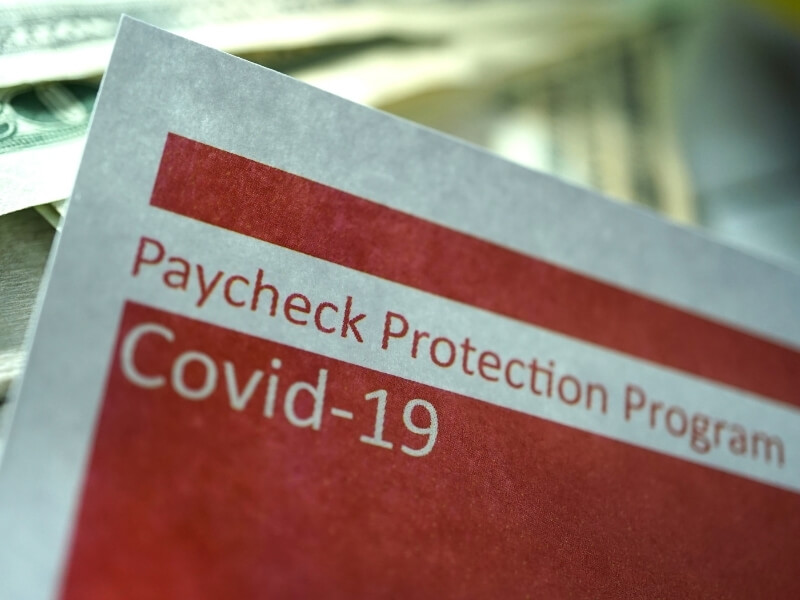PPP Loan Tax Implication Questions Answered | Perry And Associates CPAs


How will CARES Act Funding impact your 2020 Taxes?
2020 was a year for the books, so it probably comes as no surprise to you that last year may have a unique impact on your books. If your business received a slice of the $5 billion+ pie that was the Paycheck Protection Plan in 2020, you’ll want to know about the PPP loan tax implications that will apply for 2020 filing. Will you be taxed on this income? Are you allowed to deduct expenses paid for with PPP? We’ve outlined a few of the common questions we have been receiving in hopes to help you gain a foundational understanding. As always, see your CPA for legal tax advice regarding your specific situation.
Will my business be taxed on PPP income?
In December of 2020, the Coronavirus Response and Relief Supplemental Appropriations Act clarified that a forgiven PPP loan is entirely tax-exempt and is classified as non-taxable income. Your PPP loan is forgivable as long as the money was spent on payroll expenses, mortgage interest, utility payments, rent, operational expenses, property damage costs, (due to public disturbances in 2020), supplier costs, and/or worker protection expenditures.
Can my business deduct traditionally deductible expenses paid for with PPP Loan Income?
Yes. The Coronavirus Response and Relief Supplemental Appropriations Act passed in December 2020 reversed the original decision not to allow deduction of expenses paid for with PPP income. The decision was reversed due to the fact that some businesses may have had higher taxable revenue in 2020 than in previous years without being able to write off as many expenses.
Can payroll taxes be deferred if my business received a PPP loan?
Yes, payroll taxes from March 27th, 2020, through December 31st, 2020. Even if your PPP loan is forgiven, you may still defer the payroll taxes. Fifty percent of the deferred taxes accumulated in 2020 must be paid by December 31st, 2021, and 50% of the deferred amount must be paid by December 31st, 2022.
Can my business use PPP funds to pay for 2020 taxes?
No. PPP loans can only be used to pay for specific outlined expenses outlined in the answer to question number one above, so taxes cannot be paid with PPP funds.
A note on other CARES ACT income:
PUA- Pandemic Unemployment Assistance
It often comes as a surprise to many, but unemployment benefits are considered taxable income. You will still owe state and federal taxes on any unemployment compensation that you have received. However, you will not owe any medicare or social security taxes. Some people opt to have the taxes automatically withheld from their benefits by filing a W-4V, but if you do not remember specifically requesting to have taxes automatically withheld, then you will still owe them when reporting the income you received on your 2020 tax return. You should have received a 1099-G from your state labor office stating how much PUA compensation you received and if any taxes were already withheld.
EIDL- Economic Injury Disaster Loan (and Grants)
EID Loans will be treated as any other loan when it comes to tax time, but EID grants have been declared tax-free and it is, therefore, unnecessary to include that grant amount in your taxable income total for 2020.
Still have questions?
The U.S. Chamber has released an updated guide to Small Business COVID-19 Emergency Loans that further explains the substantial changes passed into law in December 2020.
Looking for Professional Help Sorting Out PPP Loan Tax Implications?
Contact us for service you can trust! Perry & Associates CPAs has multiple offices throughout the Mid-Ohio Valley.
